- Home
- Peter Lerangis
Antarctica Page 8
Antarctica Read online
Page 8
“Dandy,” Barth drawled. “Just prop me up and point me to the banquet table.”
“Hungry!” Oppenheim threw his head back and laughed. “Imagine that. As if he’s the only one starving here.”
“Oppenheim, have some respect,” Lombardo snapped.
“Respect for what?” Oppenheim replied. “Barth? If he’d had a lick of sense he’d have died and decreased the surplus population.”
“Enough, you blaspheming lunatic!”
“Sticks and stones may break my bones — and no one cares but Davy Jones!”
Lombardo bolted upward from his crouch, and Oppenheim darted out of the tent.
“You better run if you know what’s good for you!” Lombardo bellowed.
“If you stopped acting like a gorilla, sailor,” Captain Barth said, “people wouldn’t bait you. Thank you for your prayers. Dismissed. All of you!”
“Thank you, sir.” Lombardo stood, bowed, and backed out of the tent.
The sailors were moved by Barth’s survival. As they filed out, Andrew could feel the change in the air. A spark of optimism.
Dr. Montfort brought Barth a mug of freshwater, melted from snow.
“How is Nesbit?” Barth asked.
Andrew glanced at the doctor, who shook his head slowly.
Barth’s eyes grew suddenly glassy. “Did he suffer?”
“He never woke up,” Dr. Montfort said.
“He was one of the best.” Barth looked away. “Hayes?”
“He’s right behind me, Captain. Recovering. Exposure and frostbite. He’ll be all right, I think.”
“And the stores — any meat?”
“The men are hunting. The seals seem to have migrated. Unfortunately we’ll have to be patient.”
More than patient, Andrew thought. Soon they’d have to suck nutrients out of wool.
The men had been hunting daily. So far they’d brought back two penguins, a skua, and an albatross. Not nearly enough meat.
Seals and penguins were sustenance out here.
The camp would have to be moved closer to the wildlife. But who knew where the wildlife had gone?
Andrew’s stomach was beyond painful. It felt dried out, shriveled and hard like a walnut. Today his tongue began to water at the sight of the dogs. The thought horrified him. But once, the thought of eating seals and penguins had horrified him, too.
Hunger warped your mind. You saw the world in two categories, edible or inedible. And the definitions changed daily. How far down the evolutionary chain could you slide before you completely lost your humanity?
The hunters would return soon. Maybe today they’d be lucky.
Andrew stood to leave. “Good to have you back, Captain.”
Barth nodded impatiently. “Yes.”
As Andrew hobbled out, he leaned on a cane made of a plank from the Mystery’s deck. Its handle resembled a comely young woman—whittling courtesy of Brillman.
Outside the tent, he placed weight on the injured leg. It still hurt like the devil — maybe a little better than the day before, but not much.
“Oppenheim, get up or I’ll throw you out.”
Lombardo again. Inside his tent now.
“Who’s going to force me?” Oppenheim asked.
“You want to see force? I’ll show you force!”
Stimson rushed toward the tent. “Get ’im!”
“Fight!” Bailey shouted.
Andrew made his way to the tent. Inside, Lombardo and Oppenheim stood on opposite sides of a cot. Lombardo’s fists were clenched, his face red.
“Lombardo, you’re going to give yourself another heart attack!” Andrew called out.
“He was lying on my cot when I got in here,” Lombardo exclaimed. “He knows I’m sick.”
“I’m sick, too!” Oppenheim said. “Everybody says so! Why should you get the deluxe suite, you bombastic lickspittle?”
Lombardo stepped over the cot. “I’ll kill you. I will personally take you apart, do you hear me?”
“Do it, Vincent. Please. Kill me. Then kill everybody else. Do us all a favor, will you? Because if you don’t, the cold will. Or the water. Or the starvation.”
Lombardo had Oppenheim by the throat. “You want me to do it! YOU REALLY WANT ME TO DO IT, YOU WHINING, GOOD-FOR-NOTHING —”
“Stop it!” Andrew shouted. He grabbed Lombardo by the arm and tried to yank him away.
The cane fell. Andrew tumbled to the ground and howled with pain. It felt as if the wound had been ripped open.
Stimson and Bailey stooped to pick him up. Andrew struggled to his feet.
The men had pulled Lombardo off Oppenheim now, but he was still seething.
“Oppenheim, come with me,” Andrew said, taking his cane.
“Me?” Oppenheim asked. “Where are we going?”
“For … a walk. I need someone to … spot me.” Andrew took his arm and ushered him out the tent flap.
“You’re lucky, Oppenheim, do you hear me?” Lombardo shouted. “Next time I see you, you won’t be so lucky!”
18
Philip
February 9, 1910
“WE’RE TACKING!” JACK SHOUTED. “Ready about!”
“Tacking, yes,” Philip said. “Tacking …”
The sail suddenly swung around like a gate. The large horizontal block of wood hurtled toward Philip’s cranium.
With a shriek, he ducked.
Duck was what they meant to say. Duck. Why were these sailors so obtuse?
And why, out of all the men left behind on that dark satanic shore — all professional sailors of great distinction — was Philip chosen for this trip?
They wanted to kill him. That was the only plausible explanation.
The recent catastrophe had affected their minds. Perhaps that hideous cave contained noxious gases. Winslow and son had indeed become a bit strange after cleaning it out — wan and morose, as if they’d discovered the remains of some long-lost relative.
The boat was turning hard, rising up on one side. Philip clutched the edge to keep from falling.
“Father, it’s sucking us in,” Colin said.
“Sucking?” Philip squeaked.
“Hold on tight, Philip!” Jack warned.
Philip looked over his shoulder. He wished he hadn’t. He wished he’d had the sense to curl up under the deck and cower.
The boat was at the edge of a maelstrom, a whirlpool of such viciousness that it sloped downward like the open maw of a malevolent underwater creature.
“Get us out of here!” Philip shouted. “Tack … or something!”
The two Winslows fussed with the sail, pulling and changing angles, but it did no good.
“Stop, Colin!” Jack cried out. “It’s no use! Slacken it!”
“You’re not giving up, are you?” Philip asked.
“No!” Colin loosened the sheets and the sail went slack. “Once we’re in the pool, the sail does more harm than good. It’ll make us heel!”
The Horace Putney was in the pool, all right. She tilted toward the center, gaining speed. Philip’s sight blurred. The water’s deafening rush sounded like a massive industrial machine.
He could no longer hear Jack’s or Colin’s voices, but he could see them both on the tilted foredeck, struggling to stay upright. The sail’s bottom edge was blowing in the breeze, the wooden thing — the boom? — flailing wildly against the shins of both men.
That wouldn’t do. Philip slid forward. Fighting dizziness and nausea, he clutched the boom and held fast.
Colin gave up trying to lash the sail. He grabbed the mast with one hand, his father with the other. They were yelling something to Philip, but he couldn’t hear them.
The mast bent with Colin’s weight. Philip pushed the boom aside and reached up toward him.
With a crrrrack that resounded even over the surging waters, the mast split.
Colin vaulted off the deck, over Philip’s head, and into the boat, pulling Jack with him.
Philip crin
ged, covering his head with his hands. He heard a thud.
When he looked up, Colin was leaning over his father’s inert body, listening for breath, shaking him.
He was out cold. Dead, perhaps.
One down, two to go.
Philip closed his eyes. This was it, wasn’t it? This was why God had spared him when he’d fallen through the ice. A quick demise wouldn’t be proper for a wretch like Philip Westfall, would it? Better a slow, cruel death spinning in an ever-quickening gyre.…
“I STOLE THE MONEY!” Philip cried out, casting his eyes heavenward. “I DID IT, BUT I WAS PUT UP TO IT BY THE OTHERS! OUR GUNS WERE TOYS — TOYS, DO YOU HEAR? I WILL TAKE FULL RESPONSIBILITY AND REPENT! TAKE ME, DELIVER ME FROM THIS PLACE, BUT AT LEAST SPARE COLIN AND HIS FATHER!”
Philip felt himself sobbing.
He sounded ridiculous.
Fortunately Colin hadn’t heard a word of it. He was trying to stanch a wound on his father’s head with a wet strip of cloth he’d ripped from his own coat.
The boat was still miraculously afloat. If Philip wasn’t mistaken, the whirlpool was flattening, too. Losing a bit of strength.
Philip snatched up two oars from the boat floor. He jammed them in the oarlocks.
And he rowed.
19
Andrew
February 9, 1910
EXQUISITE.
In his dream, Andrew is in a restaurant and it is exquisite. Mother sits across the table. She looks young and beautiful, the pneumonia long gone, not the trace of a care on her face. The warmth of her eyes could melt away the entire Antarctic ice cap. And perhaps it has. The other two places at the table, set for Colin and Jack, are empty. But they’re coming, too. Very soon.
Outside the window the fog is thick. It seems as though they’re floating on a cloud. And perhaps they are. Andrew is bursting to tell Mother about the menu, but he doesn’t have to. Right then the waiter arrives with two dinners. He’s a funny sort of fellow, wearing white tie and tails and waddling in an odd manner. With great pomp and dash, he raises the two plates over his head, then sets them on the table in front of Andrew and Mother.
On each plate is penguin meat.
Mother’s face goes white. She is appalled.
Andrew, however, is ravenous. He picks up his knife and fork, plunges them down, and
KKKRRRRROKKKKK!
“What was that?”
“I don’t know.”
Hayes. Petard.
Andrew opened his eyes and sat up. The dream fell away in fragments.
Around him, the men were waking. The noise had been real.
The taste of penguin remained in Andrew’s mouth, and he ran his tongue along his still-greasy lip. He felt the pleasant bulge in his belly and remembered the sight of the animal slow-roasting over a pit.
Then the memory of the previous night rushed in. The walk with Oppenheim. A sudden chittering noise behind a pressure ridge. A frozen pond full of penguins. A slaughter.
He felt like throwing up.
What had happened? What had he become? An animal. All instinct.
And it had satisfied him. Afterward, back at camp, the smell of roasting meat had brought tears to his eyes and made him drool. His reaction had been no different from that of Socrates.
It was happening just the way he feared it would. A person was an animal, a person had to eat.
Brillman headed for the tent flap. “Probably some pressure ridge tipping over.”
“Not near the infirmary, I hope,” Stimson said.
“Don’t worry, we’d hear Oppenheim complain,” Siegal remarked.
Brillman’s eyes were locked on something outside. He blanched. “Oh my lord. Get out here, men. On the double!”
The sailors pulled on their jackets and raced outside.
Andrew forced himself up, using the tent post for support. The men were racing toward the jagged edge of a narrow stream.
“What is it?” Captain Barth called from the infirmary tent.
“The floe is splitting, sir!” Andrew called back.
“What direction?”
“West.”
“Then strike camp and move southward while we’re still attached!”
The crack was growing around to the south now. The floe pitched on the current, twisting away from the ice sheet.
Robert began taking down tents. Nigel gathered up supplies. Holding Demosthenes in his arms, Kosta whistled for the other dogs. Brillman and Siegal turned the Raina right-side up, and then Dr. Montfort and Petard loaded aboard the injured, in their cots. Except Barth. He insisted on walking.
Bailey and Stimson crowded all the supplies around and under the cots, and the camp was ready to go.
Andrew joined the men as they gathered around the Raina. He could support himself on the ship’s bulwark and even lend a little muscle to the push.
“Ready? Ho-o-o!” he shouted.
No one snickered. No one balked at listening to him.
They all pushed forward. Southward. Farther into the ice cap.
Behind them was a sound like the snap of a great oak tree.
Andrew glanced over his shoulder and saw what was once Camp Hope break into small chunks that bobbed slowly out to sea.
20
Philip
February 9, 1910
PULL.
Philip felt nothing.
Pull.
His gloves were rigid with ice. His blisters had grown, burst, bled, then given way to new blisters underneath, which had grown, burst, and bled. His backside chafed against the motion of rowing, and he sat in a moving pool of blood. Saltwater clung to his skin through every item of clothing.
Pull.
Since the maelstrom had ceased — by an act of a merciful God or blind luck — the coast and the sea had remained indistinguishable in the fog. Colin and Philip were in constant motion, but it seemed they hadn’t moved a centimeter. Their oars had grown heavy with encrusted ice, but they didn’t dare stop to break it off for fear of collapsing.
Pull.
In the shadow under the decking, Jack shifted positions.
Philip unlocked his frozen jaw and spoke. “Conscious?”
“No,” Colin replied.
Pull.
Pull.
“Colin?”
“Mm.”
“Why are we doing this?”
“Doing what?”
“Going back.”
Pull.
“Why do you think, Philip?”
“If they survived, don’t you think they’d have kept on sailing?”
“Yes.”
“Then they would have found us.”
“Maybe.”
Pull.
“Don’t you agree?” Philip insisted.
“Well, what happened to us?”
“Us?”
“Mast damage. Hull damage.”
“Ah.”
Pull.
“We put in,” Colin said.
“Yes.”
“Maybe they did, too. Somewhere else. Another cove.”
“Perhaps.”
Pull.
“You think they’re dead, Philip?”
“Or rescued. That Walpole fellow.”
“Walden.”
“Walden. He may have found them. Perhaps he’s coming back to get us.”
Pull.
Pull.
“That would be lovely, wouldn’t it, Colin?”
Pull.
“They … weren’t,” Colin said.
“Pardon?”
“Rescued. They weren’t rescued.”
“Oh?”
“He’s gone. Walden.”
“What do you mean, gone?”
Pull.
“I mean, he’s already sailed through here.”
“How do you know?”
“We found his flag in the cave. Matches. A cigarette. Human waste.”
“Are you sure they were his?”
“Can you suggest any other possibilities?”
Pull.
“And that’s why you and your father were so … inscrutable?”
“Sorry.”
“You knew! You knew we were doomed and you didn’t say anything?”
“We thought it would bring down morale.”
Pull.
Philip was stupefied.
The plan had hinged on Walden. The alternative, Defection Island or whatever that bloody place was called, was ludicrous. Even with the Mystery it would be an outside shot.
Pull
Philip felt everything now — the friction, the blisters, the sores, the pain. The excruciating, senseless pain. The realization that every moment, from his humiliating arrival in New York to this slow boat to oblivion, had been the piling on of calamity upon catastrophe that led to only one possible conclusion.
Pull.
“Then why pretend there’s hope of rescue?” Philip demanded. “Why row, Colin?”
“Because.”
“What kind of fool reason is that?”
“Because there is never — never — a good reason to stop trying your hardest.”
Pull.
“Oh, that’s rich, Colin. Lovely. Bloody inspirational. Well, let me try to think of a reason. Ah, I know: We’re three thousand nautical miles from anyplace where Weddell seal is not considered a rare delicacy, our whereabouts are known only to one wretched human being who fouled our cave and sailed off—and, if we’re very lucky, we number thirty men and thirteen dogs in three rowboats! There’s your reason!”
Pull.
“Why are you laughing?”
“To hide the fact that I want to cry!”
Splash.
“Philip?”
“What?”
“That noise? Did you hear it?”
“What noise?”
“The splash!”
“I hear nothing but splashes. Is this some sort of game? Shall we count them, then? Onetwothreefourfive —”
Thump.
Philip shut up.
“Did you feel that, Philip?”
“Of course I did! What is it?”
“I don’t know!”
They stopped rowing.
And slowly, on its own, the Horace Putney started to move. Sideways.
“Colin, something’s underneath us!”
“I’ll get the gun —”
Colin ducked under the decking. His father stirred and opened his eyes.
From the port side came a deep watery bellow like the sudden release of a thousand fire hoses.

 The Orphan
The Orphan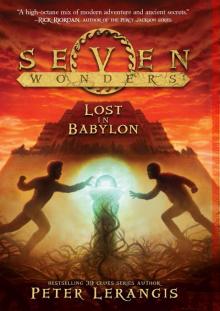 Lost in Babylon
Lost in Babylon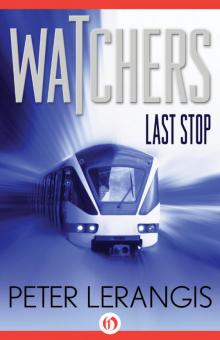 Last Stop
Last Stop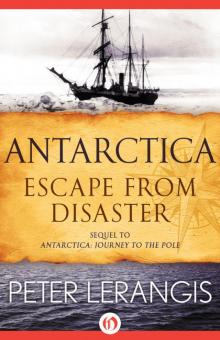 Antarctica Escape from Disaster
Antarctica Escape from Disaster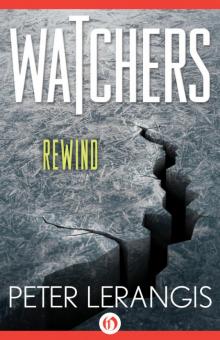 Rewind
Rewind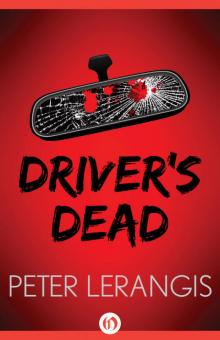 Driver's Dead
Driver's Dead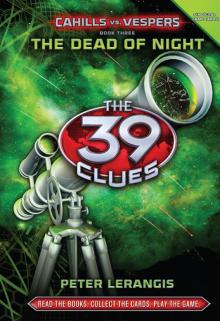 The Dead of Night
The Dead of Night The Promise
The Promise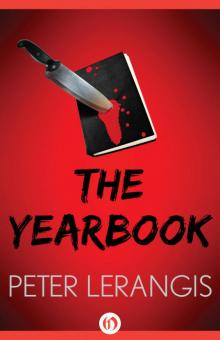 The Yearbook
The Yearbook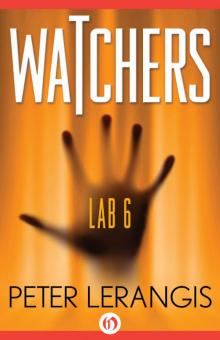 Lab 6
Lab 6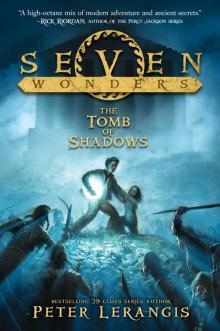 The Tomb of Shadows
The Tomb of Shadows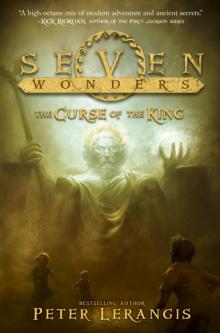 The Curse of the King
The Curse of the King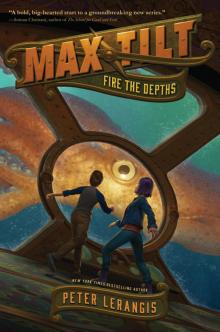 Max Tilt: Fire the Depths
Max Tilt: Fire the Depths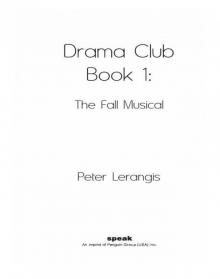 The Fall Musical
The Fall Musical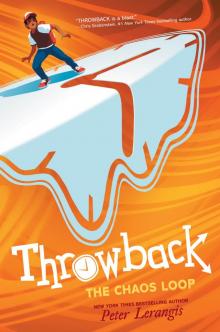 The Chaos Loop
The Chaos Loop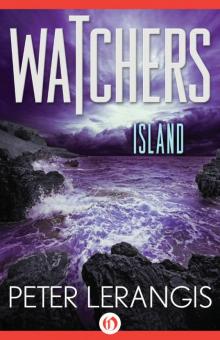 Island
Island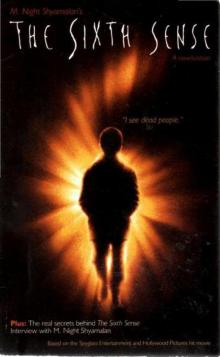 The Sixth Sense
The Sixth Sense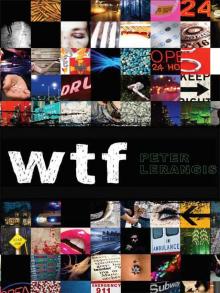 Wtf
Wtf War
War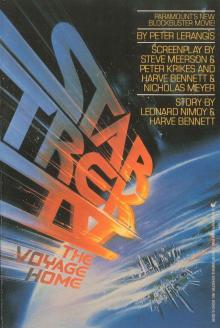 Star Trek IV, the Voyage Home
Star Trek IV, the Voyage Home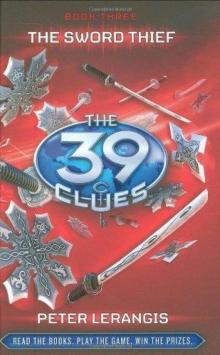 The Sword Thief
The Sword Thief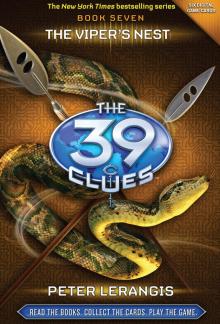 The Viper's Nest
The Viper's Nest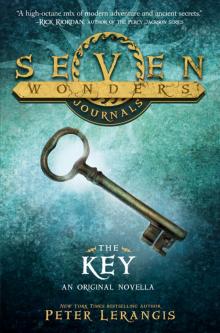 The Select
The Select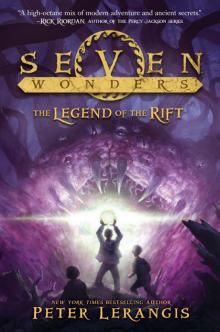 The Legend of the Rift
The Legend of the Rift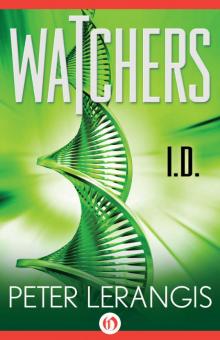 I.D.
I.D. The Sword Thief - 39 Clues 03
The Sword Thief - 39 Clues 03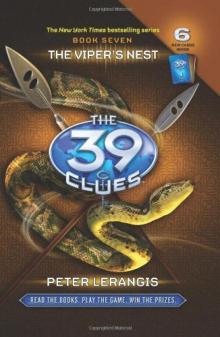 The 39 Clues Book 7: The Viper's Nest
The 39 Clues Book 7: The Viper's Nest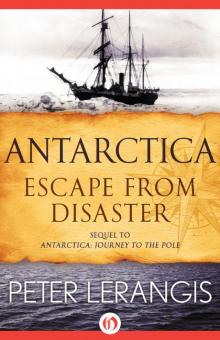 Antarctica
Antarctica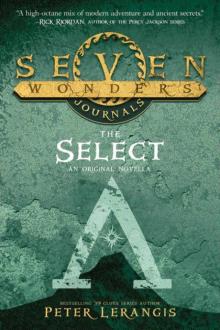 Seven Wonders Journals: The Select
Seven Wonders Journals: The Select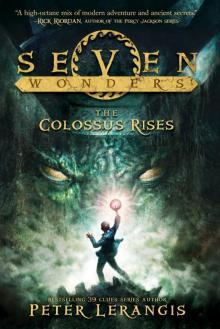 Seven Wonders Book 1: The Colossus Rises
Seven Wonders Book 1: The Colossus Rises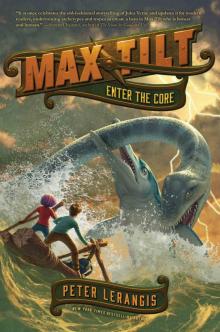 Enter the Core
Enter the Core![39 Clues _ Cahills vs. Vespers [03] The Dead of Night Read online](http://i1.bookreadfree.com/i1/04/02/39_clues_cahills_vs_vespers_03_the_dead_of_night_preview.jpg) 39 Clues _ Cahills vs. Vespers [03] The Dead of Night
39 Clues _ Cahills vs. Vespers [03] The Dead of Night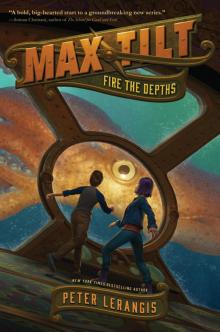 Fire the Depths
Fire the Depths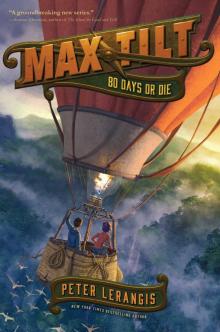 80 Days or Die
80 Days or Die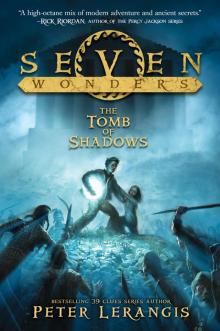 Seven Wonders Book 3
Seven Wonders Book 3